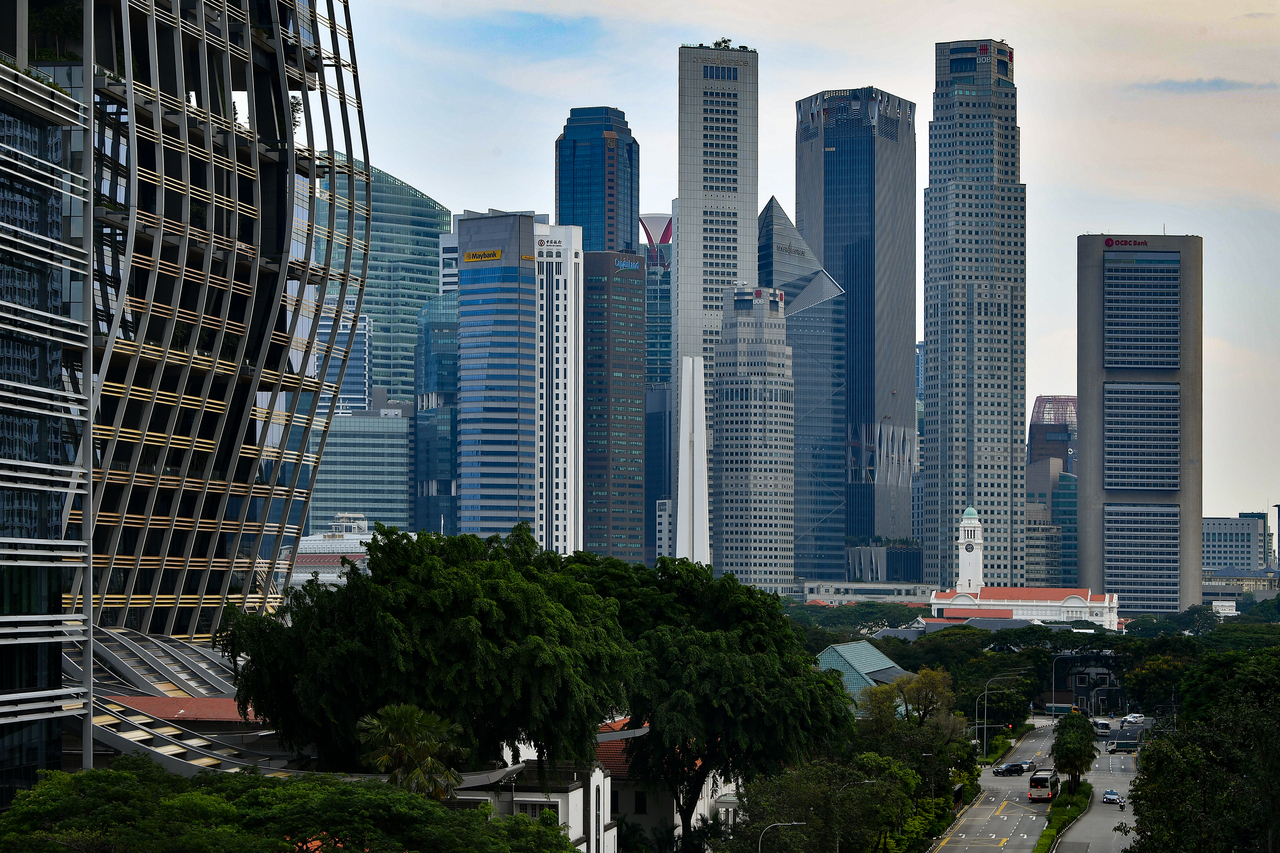Remote working gives S'pore edge in attracting talent, but could worsen inequality: Panel
Sign up now: Get ST's newsletters delivered to your inbox

Cities like Singapore offer not just a good business environment but also quality of life, said the panellists.
PHOTO: ST FILE
Follow topic:
SINGAPORE - In a world where working remotely has become more commonplace, making it easier for people to relocate, cities like Singapore, which offer not just a good business environment but also quality of life, will have a competitive edge in attracting global talent.
But while the mobility of the global workforce allows Singapore to compete for talent in a way that was not possible before, this could also worsen inequality, said panellists at the Singapore Perspectives conference on Monday (Jan 17).
That is why the pursuit of economic achievement must happen in tandem with improvements in other social dimensions, they added.
Harvard University economist Edward Glaeser, Ministry of Trade and Industry Permanent Secretary Gabriel Lim and Landfall Strategy Group founding director David Skilling were speaking at the "City as Economic Space" session on the challenges and opportunities that Singapore faces in its ongoing urban economic development.
While cities emptied out in the early months of the Covid-19 pandemic and social restrictions have altered the way people work and live, these changes will not add up to cities and offices becoming obsolete as predicted by some, said Professor Glaeser in recorded remarks.
"In a world of information intensity, we get smart by being around other smart people, we get creative by being around other smart people," he added.
In fact, technology such as Zoom will not kill off cities, but has given people more choices in terms of where they want to live, increasing competition for global talent.
And with human capital key to a city's success, the question is whether Singapore can reinvent itself to become the best place for people who can work anywhere to live, work and play, said Mr Lim.
He acknowledged the sensitivity that might arise from this talent policy, noting that people around the world have become anxious from competition.
To assuage these concerns, the Government is adjusting its manpower policies to strike a balance between openness and assurance for workers, as well as strengthening institutional support to help people upgrade, such as through the SGUnited Jobs and Skills programme, he said.
Mr Lim added that the Government is also paying special attention to social support and community care for those who are less skilled and more vulnerable.
"I want to assure... members of the public that we are not just these very mercenary people. We understand that all of us are involved in nation building, and the only way to build a nation is to make sure that it is inclusive, that people see in Singapore a home for all, and it's united, it's cohesive," he said in response to questions about people being left behind in Singapore's pursuit of being a global economic hub.
Even if Singapore does not develop as a global city, it does not mean that there will be fewer people left behind, he added, citing how the Covid-19 pandemic and previous recessions have shown that it is always the vulnerable who are more badly hit when the economy does not do well.
"I think what's important for us is to continue to maintain that focus on growth, but at the same time making a special effort on redistribution, making sure that it is more inclusive and giving everyone a greater share of the prosperity," said Mr Lim.
This sentiment was shared by Dr Skilling, who noted that when growth is more broadly shared, governments can pursue open markets more aggressively and on a more sustained basis.
But he noted that while Singapore may enjoy the best of both worlds in terms of being a country and a city, it also faces the challenges of both worlds.
"The complication for Singapore is that Singapore is both simultaneously a country and a city," he added.
He said other global cities like London and New York, for instance, can focus on per capita income and do not need to worry so much about income distribution or cost of living, since people there can quite easily leave for other lower cost areas of those countries - an option that is not open to Singaporeans.
So while it makes sense to benchmark itself against such big global cities, Singapore simply cannot replicate their policies and must chart its own path, Dr Skilling added.
He cited the Government's push to grow local firms into global players, saying this will create more opportunities for Singaporean workers and companies.
Besides maintaining its competitiveness vis-a-vis global talent, Singapore will also have to expand its global connectivity in a post-Covid-19 world to thrive, said PSA group chief executive officer Tan Chong Meng and Maritime and Port Authority of Singapore chief executive Quah Ley Hoon at another session.
The two panellists who spoke on the theme "City as Connected Space" said Singapore's ports, for instance, must always strive to be slightly different from other ports so as to maintain its "stickiness".
Mr Tan suggested that with today's digital platforms and connectivity, Singapore should work to set up the right highway and common data environment that allows the ports here to orchestrate the different parts of the chain together with shipping lines, to better benefit from the network effect.

